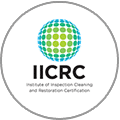Moisture is not your friend when it comes to a popcorn ceiling. So, the question now is how to repair popcorn ceiling water damage. Some people will hire a professional to do it for them, while others are big do-it-yourselfers and will take on the task on their own. Whichever way you choose to proceed, you should be aware that this process can be very messy. The best thing to do is to call a professional water damage restoration company for help to make it’s done right the first time.
How to fix ceiling water damage
To repair a water-damaged popcorn ceiling, you must first identify the source of the problem. The first step is to repair the underlying cause, which may be a plumbing leak or a leaking roof. If the water damage was caused by an outside source, it is necessary to contact a licensed plumber or carpenter to fix the issue. Once you’ve fixed the root cause, you can work to repair the popcorn ceiling.
Once the area is completely dry, you can begin the process of applying the new texture. This method requires a fair amount of work and requires a lot of patience. You must also prepare the area by sweeping the ceiling with a damp cloth and applying a KILZ ceiling primer. Then, you can apply the patch material. Make sure you wear a dust mask and safety glasses while working with the patch material.
Regardless of which method you choose, you must protect the floors and furniture underneath the damaged ceiling. Once you’ve removed the water-damaged texture, it’s time to tackle the problem at the source. Repairing the water source is crucial to prevent further damage to the ceiling. If you’re unsure about the process, contact a professional. This will ensure a professional finish. You’ll want to protect yourself and the entire room from a chemical reaction.
How to fix mold on ceiling
When you’ve experienced water damage and mold growth on your popcorn ceiling, you might wonder how to remove the mold. First of all, you should rinse your cleaning cloths and sponges well. Using soapy water or bleach could transfer the mold around your ceiling. Use a non-slip mat underneath your ladder or stool to keep from slipping while cleaning. If you can use a fan to dry the ceiling, which will help reduce the chances of mold regrowth.
To remove the mold, first determine where the mold has spread. Mold is a threat to health, especially for those with respiratory problems or a weak immune system. If you can’t reach the ceiling, cover the surface with plastic sheeting. Close any vents and keep windows open to prevent the mold from spreading. Next, install a sturdy ladder and work under the affected area. Use a mild detergent to remove the mold growth.
You can also apply distilled white vinegar to the affected area to get rid of black mold. After applying the solution, wait about 30 minutes. After this time, wipe off the surface with a clean cloth. Do not reuse the cleaning cloth, as it will only contaminate the new solution. Also, keep in mind that the mold may have roots and could be growing deeper into the porous material beneath the popcorn texturing. If this is the case, your efforts may be in vain.
If you have a water damaged ceiling in the Atlanta, Georgia area contact Reliable Restoration for help and a Free Quote






